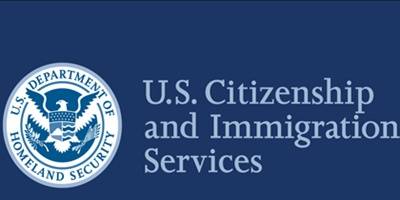hi INDiA Copyright 2022-2050

 Rescinding work authorization for H-4 visa holders disproportionately impacts immigrant women and families from South Asian countries, said South Asian American Policy & Research Institute (SAAPRI) in a report released today. On February 20th, 2019, U.S. Citizenship and Immigration Services (USCIS) issued a proposal to remove “H-4 dependent spouses from the class of aliens eligible for employment authorization,” which has been under review for months with an uncertain decision date.
Rescinding work authorization for H-4 visa holders disproportionately impacts immigrant women and families from South Asian countries, said South Asian American Policy & Research Institute (SAAPRI) in a report released today. On February 20th, 2019, U.S. Citizenship and Immigration Services (USCIS) issued a proposal to remove “H-4 dependent spouses from the class of aliens eligible for employment authorization,” which has been under review for months with an uncertain decision date.
The report, Defying Dependence, incorporates survey data from over 100 South Asian H-4 visa holders, dependent spouses of H-1B workers, and includes in depth profiles of 6 women on the H-4 employment authorization document (EAD) from different parts of the U.S. The report is coauthored by Dr. Amy Bhatt, author of High-Tech Housewives: Indian IT Workers, Gendered Labor, and Transmigration. According to SAAPRI’s findings, since the adoption of the H-4 work authorization policy in 2015, 93% of all H-4 EADs were granted to South Asians and 93% were granted to women.
“Current immigration policy is inequitable for those seeking citizenship and belonging in the U.S from select countries. This report aims to voice the experiences of those directly impacted by pending work authorization policy change in the H-4 community, the vast majority being South Asian women and families,” said Dhara Puvar, Executive Director of SAAPRI. “Our findings reveal that the H-4 EAD rescission is a racial, economic, and gender justice issue.”
SAAPRI found that revoking the H-4 EAD would have a detrimental impact on economic independence for women, as H-4 visa holders could remain unemployed for up to 10 years or more without the EAD. Defying Dependence also discusses how the ability to work is closely tied to mental health outcomes for H-4 EAD holders and their families. Urvashi, one of the H-4 EAD holders interviewed for the report, explains, “[The H-4 EAD] policy change was a life-giver to many women like me who were stuck at home, with no life of their own or sense of purpose.”
“Our hope is that SAAPRI’s data can be used to support advocacy efforts to protect the EAD and drive evidence-based comments to USCIS during the public comment period that will open once the proposed rule change is published to the Federal Register,” said Tejas Shah, SAAPRI Board member and prominent immigration attorney.
Defying Dependence calls for the protection of H-4 work authorization and a Congressional solution to the Green Card backlog that will ensure that the H-4 EAD program does not remain a stop-gap solution to current immigration hurdles. SAAPRI thanks the South Asian Bar Association of North America Foundation and the Chicago Foundation for Women for funding to develop this report.
This website uses cookies to improve your experience. We'll assume you're ok with this, but you can opt-out if you wish. Accept